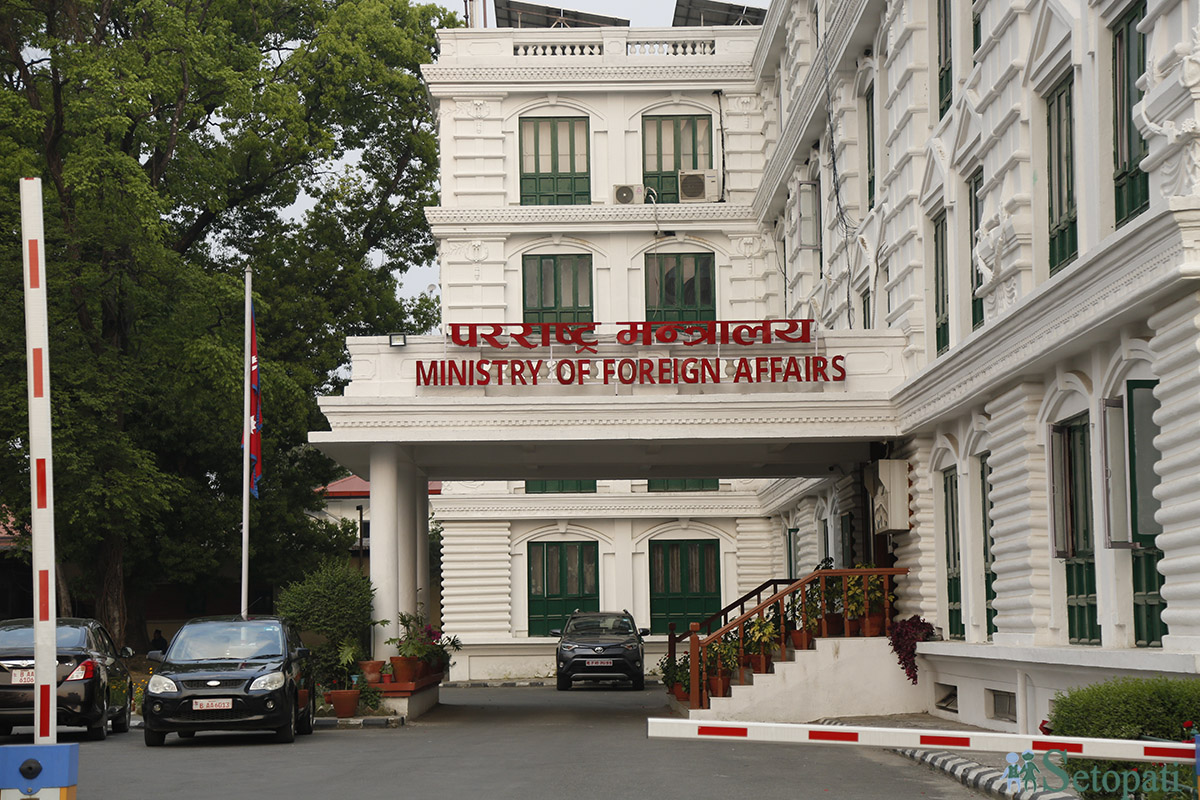Nepal has expressed solidarity with India in its strikes on Pakistan in response to the terrorist attack on tourists in Pahalgam of Indian Kashmir on April 22.
Issuing a press statement on Thursday, the Ministry of Foreign Affairs (MoFA) said that the Nepal government is deeply concerned about the escalating tensions between India and Pakistan following the April 22 terrorist attack, in which 26 people including a Nepali national were killed. “During this tragic period, Nepal and India stood in solidarity, united in shared grief and suffering,” MoFA said in the statement.
“It may be recalled that Nepal had immediately and unequivocally condemned the barbaric terrorist attack, consistent with its resolute stance against all forms of terrorism,” the ministry further said. “Nepal stands together with all in the fight against terrorism. In line with its principled position, Nepal shall not allow any inimical forces to use its soil against its neighboring countries.”
Nepal hopes for de-escalation of tension and affirms its commitment to lasting peace and stability in the region, the ministry’s press statement said.
Earlier, holding a special press briefing in New Delhi on Wednesday morning, Indian Foreign Secretary Vikram Misri said that India exercised its right to respond to terrorist attacks after hitting Pakistan with missiles early Wednesday.
“These actions were measured, non-escalatory, proportionate, and responsible. They focused on dismantling the terrorist infrastructure and disabling terrorists likely to be sent across to India,” Misri stressed.
Pointing that the attack in Pahalgam was marked by extreme barbarity, he recalled how the victims were mostly killed with head-shots from close range and in front of their families.
“Family members were deliberately traumatized through the manner of the killing, accompanied by the exhortation that they should take back the message.”
He also claimed that the attack was driven by the objective of undermining the normalcy returning to Jammu & Kashmir. “In particular, it was designed to impact the mainstay of the economy, tourism, with a record 23 million tourists visiting the valley last year,” he added. “The calculation, presumably, was that harming growth and development in the Union Territory would help keep it backward and create fertile ground for continued cross-border terrorism from Pakistan.”

